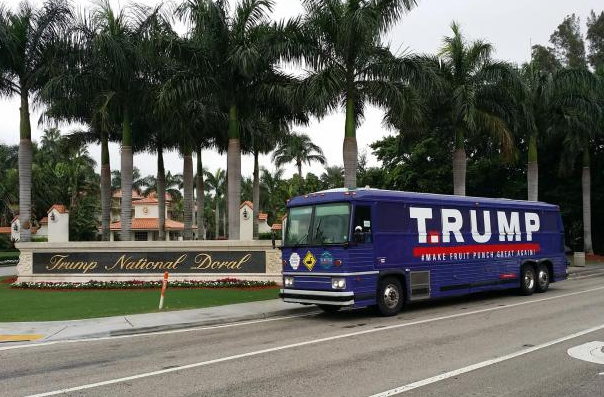How Donald Trump used Twitter to defend leaking classified information to Russia
We now have the president pretty much contradicting his own staff

For the second time in a week, President Donald Trump is in hot water - this time for sharing highly classified information with Russia during an Oval Office meeting last week. And for the second time in a week, he stepped forward to defend himself in an entirely unhelpful and contradictory way.
Here's how Trump explained things early Tuesday morning on Twitter:
As President I wanted to share with Russia (at an openly scheduled W.H. meeting) which I have the absolute right to do, facts pertaining....
...to terrorism and airline flight safety. Humanitarian reasons, plus I want Russia to greatly step up their fight against ISIS & terrorism.
But as The Post's Ashley Parker reports, that's a far cry from the tune top White House advisers were singing late Monday. And just as with last week, it seems, we now have the president pretty much contradicting his own staff on a major controversy.
The White House trotted out national security adviser H.R. McMaster on Monday night to issue a statement. McMaster said The Post's story, which broke the news, "as reported, is false."
Deputy national security adviser Dina Powell also denied the story. "This story is false," she said. "The president only discussed the common threats both countries faced."
In Trump's tweets, though, we have tacit confirmation of the story. Trump isn't denying anything, as McMaster and Powell were; instead, he's pointing out that he was within his legal rights to share such information with Russia.
As I noted late Monday, McMaster's denial wasn't really a full denial, in that he didn't quibble with actual details in the story. But it was an attempt at saying the story was false, and Trump isn't following that line.
And most importantly, Trump's "which I have the absolute right to do" appears to be a clear allusion to sharing classified information. If he were speaking generally about counterterrorism, he wouldn't need that qualifier. He's emphasizing here that presidential authority gives him the right to share such information - which is broadly true - in a way that betrays the kind of information that was shared.
There is no reason to assert presidential authority to share information if it was the kind of vanilla information McMaster and Powell led us to believe. Trump's comments may not directly contradict McMaster and Powell, but they surely contradict them in spirit. And they call into question why the White House even tried to say the story was "false" in the first place.
This is, of course, the second time this has happened in the past week. Last week, White House spokespeople stepped forward to explain the circumstances under with FBI Director James B. Comey had been fired, pointing to his handling of the Hillary Clinton investigation and saying the decision originated in the Justice Department. By Thursday, though, Trump blew up that whole storyline, saying in an NBC News interview that he had decided to fire Comey even before getting the Justice Department's recommendation. He also admitted that the FBI's investigation into Russia - and its possible links to his campaign - was on his mind when he did it.
In both cases, the White House sought to distance itself from potentially problematic dealings having to do with Russia; and in both cases, Trump totally undercut the messages of multiple top aides and basically confirmed the damaging storyline they were trying to beat back.
And if you are McMaster and Powell, you have to wonder why you were dispatched to deny the story in the first place. These are seasoned foreign policy professionals who put their own credibility on the line when they speak for the president. If they deny the story, they better hope the president backs them up.
Yet again, he's proven he's liable to say whatever he wants - even if it makes the people around him look bad.
Copyright The Washington Post
Join our commenting forum
Join thought-provoking conversations, follow other Independent readers and see their replies
Comments
Bookmark popover
Removed from bookmarks